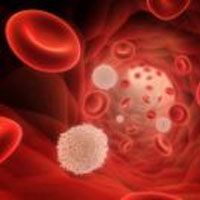Article
Monitoring TNF in Patients with Rheumatoid Arthritis
Author(s):
TNF inhibitors can be monitored in rheumatoid arthritis patients using gene expression modules, according to findings published in Arthritis & Rheumatology.

Rheumatoid arthritis (RA) patients treated with tumor necrosis factor (TNF) inhibitors can be monitored using gene expression modules relating to inflammatory diseases, according to research published in Arthritis & Rheumatology.
Researchers from various hospitals across the United States aimed in order to establish whether the analysis of whole blood gene expression is useful in predicting or monitoring the response to anti tumor necrosis factor (anti TNF) therapy in patients with RA. The investigators used whole blood RNA, from a PAX gene system to stabilize whole blood RNA in the collection tube, and examined the samples at baseline and at 14 weeks. The samples came from 3 independent branches of the study group and totaled 240 RA patients. The patients were initiating therapy with anti TNF. The researchers analyzed the gene expression using an approach based on modular patterns of gene expression, they wrote.
Patients who respondent “good” and “moderate” according to the European League Against Rheumatism criteria demonstrated both highly significant and consistent changes in multiple gene expression modules between baseline at the 14 week mark of therapy. The researchers added that the non responders only showed very little change in any module throughout the analysis, even with exposure to TNF blockade.
Additionally, the researchers discovered that the change patterns were consistent across all 3 of the study cohorts. They believed this indicated that immunologic changes after TNF treatment were specific to the combination of the drug exposure and responder status.
However, the patterns in the gene expression analysis did not demonstrate consistent differences among responders and non responders at baseline in the 3 study cohorts, the authors added.
“These data provide evidence that using gene expression modules related to inflammatory disease may provide a valuable method for objective monitoring of the response of RA patients who are treated with TNF inhibitors,” the authors concluded.




